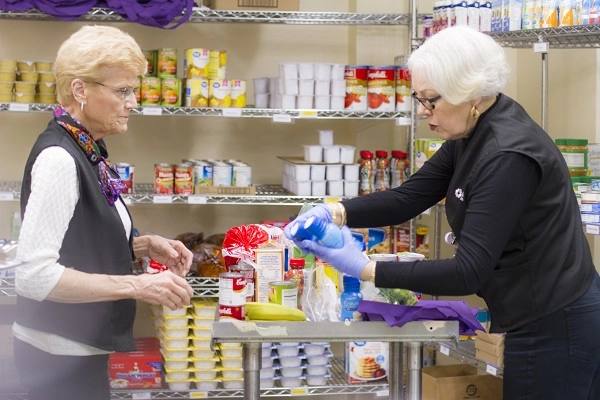Food Farmacy strives to help patients stay healthy

Salem Health is using an innovative strategy to lend extra help to patients who frequently return to the hospital.
The organization launched the Food Farmacy program at Salem Hospital in June 2017. It provides a three-day supply of nutritious food to interested patients — and household members — when they leave the hospital.
Nationwide, at least one-third of patients arrive at hospitals malnourished — and those who leave the hospital in a compromised state often return within 30 days.
Salem Health leaders were concerned about patients who may have minimal support at home from family and friends — and minimal support for their daily needs, including food. Typical items sent home with patients from Food Farmacy include tuna, rice, peanut butter, bread, tortillas, rice, and nutrition supplements.
“We hope that we’re changing their lives so that they are not readmitted,” said Lee A., a Salem Health volunteer. “The cost for us to send food home with them is so minimal compared to a hospital stay.”
Healthy inspiration
Food Farmacy is modeled after successful programs in two U.S. and two European hospitals. Locally, it has served more than 600 patients and their families — and delivered an estimated 5,400 meals so far.
“The response has been absolutely marvelous,” Lee said. “We get thanked so much for bringing the food to them. They all want a hug or shake your hand.”
A grant from the Salem Health Foundation helped kick off the program. The food is purchased from Salem Health Food and Nutrition Services, Marion-Polk Food Share and Walmart.
The food is stored in a special room at Salem Hospital, which includes shelving for canned and prepackaged foods, plus a refrigerator and freezer for perishable items.
Total team effort
The Food Farmacy program’s successful start is thanks to work done by a wide variety of contributors:
- Nurses identify patients at nutritional risk upon admission to the hospital.
- Registered dietitians then screen patients for food insecurity and develop a nutrition care plan.
- Lastly, hospital volunteers meet with the patients at time of discharge and help select foods to take home.